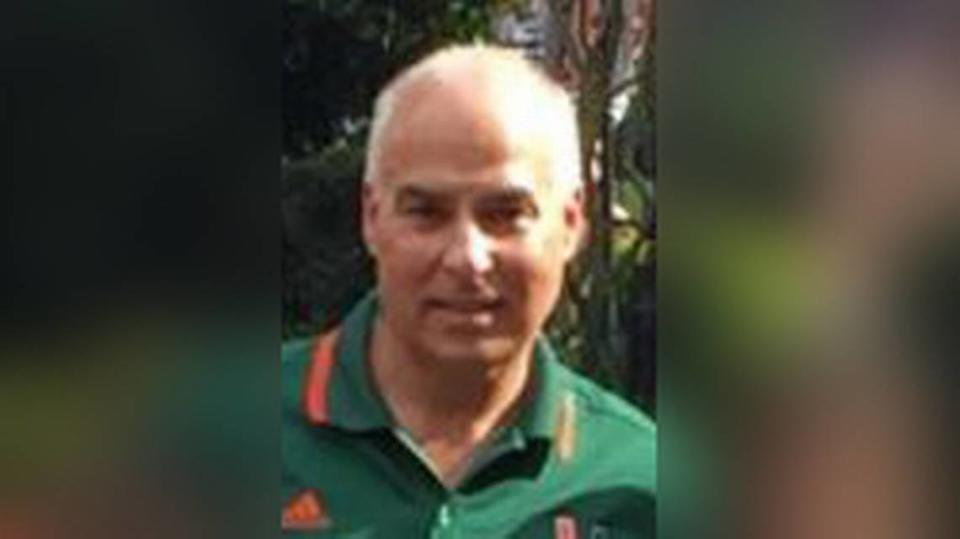No-party candidate in Florida Senate race hires lawyer, says he doesn’t live in district
A no-party candidate who ran in a Miami Senate race has retained legal counsel as state prosecutors investigate his candidacy.
Alex Rodriguez received more than 6,300 votes in the race for Senate District 37 and likely cost incumbent Democrat José Javier Rodríguez, who shared the same surname, his seat. Republican Ileana Garcia won the race by 34 votes after a manual recount. More than 215,000 votes were cast in the election.
Alexis Pedro Rodriguez, whose name on the ballot appeared as Alex Rodriguez, confirmed to a Miami Herald reporter at his Boca Raton home Wednesday that he lived in Palm Beach County and wanted to run for state Senate in Miami because as a Miami native, “it’s always something I wanted to do.”

According to election documents obtained by the Miami Herald, Rodriguez’s mailing address was in Palm Beach County for the 2020 election.
Rodriguez’s candidacy is in question after he listed a Palmetto Bay house on his sworn candidate oath, though he no longer lives there. Miami-Dade state prosecutors recently launched an investigation into his candidacy, sources with knowledge of the investigation told the Miami Herald.
When asked about the pending investigation and why the Palmetto Bay address was listed on his sworn candidate qualifying documents, he referred all questions to Miami attorney William Barzee. Barzee confirmed to a reporter that he had been retained by Rodriguez but declined to discuss the details of the case.
Mysterious candidate who likely swayed tight Florida Senate race under investigation
As part of their probe, Miami-Dade prosecutors could review several key sworn documents Alex Rodriguez provided to the Florida Division of Elections, including a candidate oath form and a financial disclosure form.
In Florida, candidates must sign an oath that lists their residency, but the oath doesn’t cite the penalties for lying, and no one actively checks to make sure candidates are qualified to run for a given office.
The county supervisors of election don’t play a role in enforcing the rule, as their offices are “ministerial, not investigative,” deputy Miami-Dade County elections supervisor Suzy Trutie said earlier this week.
Complaints of possible fraud should instead be directed toward the Miami-Dade State Attorney’s Office, the Miami-Dade Commission on Ethics and Public Trust or the Florida Elections Commission.
Questions have also been raised about his ties to the Republican Party.
Rodriguez was registered Republican when he voted in the 2018 midterm election and changed his status to no party affiliation in June, the same month that he qualified to run in the 2020 election.
Florida law requires any candidate who is seeking the nomination of any political party to be a registered member of such political party for at least one year before the general election takes place. Alex Rodriguez, however, did not run as a partisan candidate. He filed as a no-party candidate, which means the absence of a party.
After 3-day recount, incumbent Democrat loses Senate seat to Ileana Garcia by 34 votes
In a video message shortly after conceding the race, the incumbent Democrat, Jose Javier Rodríguez, expressed alarm at the influence the third candidate had on the outcome of the race and called for an investigation into the matter.
“Democracy requires transparency,” Rodríguez said in the video. “In order to achieve that, I believe this election requires a full investigation so that those who may have violated the law are held to account and so that such tactics are not used in future elections.”
Whispers in the neighborhood
The story behind Rodriguez’s candidacy is filled with unanswered questions and contradictions, and those close to him have taken note of the secrecy surrounding his purported political aspirations.
When his candidacy came to light in October news reports, his neighbors were curious.
One of his neighbors said he asked him about the campaign and Rodriguez responded: “No, that’s not me. There are a lot of people named Rodriguez.”
When asked about it again, Rodriguez changed his story.
“Later, he said he didn’t mean to cause any trouble,” said Richard Ogden, 75.
Another neighbor, who asked not to be named, said Rodriguez first told him the news articles were not about him, but later said, “I’m not really running.”
Rodriguez’s next-door neighbor, 47-year-old George Jisko, laughed when a reporter asked him about his neighbor’s aspirations.
“We talk about girls, we talk about football and the Miami Dolphins,” said Jisko, who travels from the Czech Republic to spend winters in Boca Raton. “I didn’t know he was a politician in Miami.”
An earlier version of this story said Alex Rodriguez was registered to vote in Palm Beach County. He is registered to vote in Miami-Dade County.

